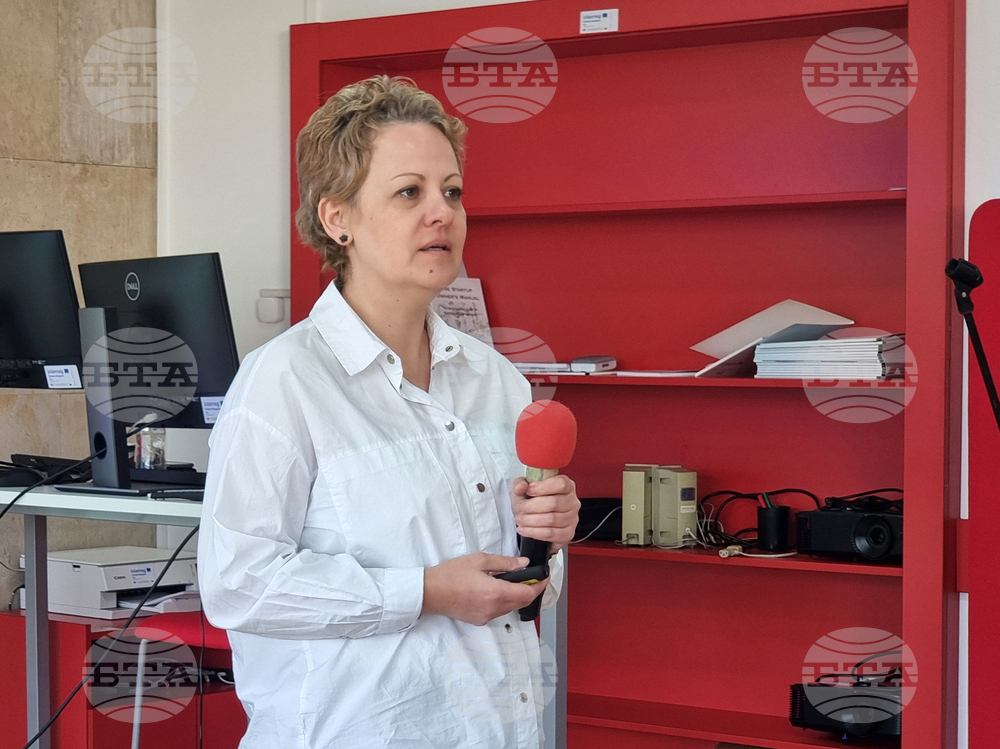site.btaBulgarian Society's Defences against Disinformation Are Weak Due to Political Confrontation - Expert


Election campaigns in Bulgaria increasingly legitimize the use of misinformation as part of the political toolkit and political rhetoric, Dr. Ralitsa Kovacheva, a professor at the Faculty of Journalism and Mass Communication of Sofia University, said in a BTA interview. She is a researcher in the field of disinformation and international propaganda.
In her words, the term "fake news" is rather outdated. "We are dealing now with narratives that are more convincing for the audience: the stories, explanations and interpretations of an event. The campaign for the most recent elections [June 9] and those in the last few years, highlighted several dominant narratives all of which aimed to instil distrust in the European Union, in European and Bulgarian institutions, and in the electoral process itself. And unfortunately, these narratives are not weakening - they are strengthening over time and we see how, perhaps partly as a result of them, voter turnout in Bulgaria has decreased dramatically. This lack of trust in absolutely anything and the feeling of helplessness makes it meaningless for people to participate in elections," said Dr. Kovacheva.
She does not see a direct connection between a possible increase in disinformation and the election campaign due to the fact that "in Bulgaria we have had an avalanche of early elections in recent years and election campaigns are no longer felt as such".
She shares an observation related to governments. "When we had caretaker cabinets appointed by the President, we had less disinformation. And when we have Parliament-elected governments with a pro-European stance and in favour of supporting Ukraine, there are very strong levels of disinformation and foreign propaganda."
What is new for her is a niche in the big propaganda against the Green Deal. Old narratives such as "they are taking away our pink tomato, home-made brandy and rose oil" have transformed into new ones: "they are banning our vegetable gardens", "they ban domestic seedlings", "they force us to buy artificial food". She believes this narrative has yet to develop. "That's how narratives generally work - they are based on a small piece of truth. The EU is indeed proposing and adopting a number of new legislative initiatives related to the regulation of growing food because people are becoming more demanding. And this is being used by the anti-EU players to make it look like we are losing our freedom to decide for ourselves what to eat," explained Dr. Kovacheva.
She does not see a direct link between disinformation and people's motivation to vote. She argues that we have no way of knowing whether voters were discouraged from going to vote because they heard a lot of untrue things or heard nothing of substance, or because all the political parties do is trade insults. "What I see, unfortunately, is that election campaigns in Bulgaria are increasingly legitimizing the use of misinformation as part of the political toolkit and political speech. Because it is one thing to spout outrages on Facebook or TikTok, and totally another thing to hear them on the national media," said Dr. Kovacheva.
According to her, the media literacy and the defence mechanisms of the society against disinformation in Bulgaria are very low and one of the reasons for this is the political confrontation. "There are politicians, political forces and institutional representatives who use disinformation as part of their political rhetoric. I don't see how a voter can know that it is a bad thing if the political party they vote for and supports, relies on disinformation as some kind of political credo," said Dr. Kovacheva. "The growing ideological confrontation - both within our society and on a global scale, also does not promote a balanced, reasonable, sober assessment of facts and decision-making.
Dr. Kovacheva has some tips for maintaining what she calls "good personal information hygiene". One is not to use the social networks to get informed. "On social media, see your friends, post pictures of your kittens and puppies, have fun. But this is not the place to read the news," she warned. Another tip is about reacting. "Whatever you see on social media and before you press any button - to share, like or drop an angry emoji - count to ten. Open a different window and then go back. And you'll see it with different eyes," concluded Dr. Kovacheva.
/NF/
news.modal.header
news.modal.text